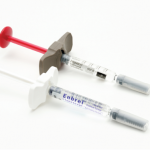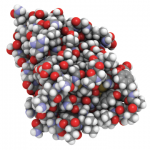(Reuters Health)—People with chronic inflammatory disorders, such as psoriasis and rheumatoid arthritis (RA), may have an increased risk of developing serious liver damage, a recent study suggests. These inflammatory disorders are often treated with methotrexate, a medication linked to an increased risk of liver disease. For the current study, researchers followed more than 1 million…

Physical Activity, Exercise Can Benefit Patients with RA
While medical advances in rheumatoid arthritis (RA) have led to improvements in disease control and quality of life for patients worldwide, the rate for stable remission remains low.1 Management of RA symptoms is traditionally accomplished through a combination of medications and nonpharmacological interventions.2 This approach can prevent the development of secondary adverse health outcomes. Two…

Insights into the Metabolic Control of RA T Cells
Metabolic control of T cell locomotion provides new opportunities to interfere with T cell invasion into specific tissue sites, according to new research…

Accelerating Medicines Partnership Shares Its Progress on RA/Lupus Network
CHICAGO—“Why do so many drugs fail in clinical trials?” asked Michael Brenner, MD, chief of rheumatology, immunology and allergy at Brigham and Women’s Hospital in Boston. This question, previously posed by Francis Collins, MD, PhD, director of the National Institutes of Health, prompted a discussion among scientists and stakeholders in the pharmaceutical industry. The conversation…
From the Front Lines: Managing RA Comorbidities in Primary Care
How are comorbidities for RA patients managed outside of rheumatology? A recent Canadian study developed and assessed quality measures related to preventive care and screenings for RA patients in a primary care setting, comparing RA and non-RA patients. The results: Primary care physicians often provide similar levels of care to patients with and without RA. But RA patients were less likely to receive some cancer screenings and all necessary tests to assess their cardiovascular risk…

Insights into Precision Immunology for Research, RA & Infection
Research in precision immunology is in its early stages. But new insights into cohorts, RA gene expression and infection presented at FOCUS 2017 may benefit future research and patient care…
AMP RA/Lupus Network Shares Its Progress
Researchers from the AMP RA/Lupus Network came together in June at the annual FOCIS meeting to share their progress as they perform a systematic molecular deconstruction of human diseases…
Reassuring Data on Cancer Risk with Contemporary RA Drugs
NEW YORK (Reuters Health)—A large Swedish study1 provides reassuring data on the risk of cancer in patients with rheumatoid arthritis (RA) treated with tumor necrosis factor (TNF) inhibitors or with tocilizumab, abatacept or rituximab. Overall, the risk of malignant neoplasms did not differ between patients treated with a first anti-TNF drug; a second anti-TNF drug; tocilizumab,…

TNF Inhibitor Drug Tapering Successful in Some Patients with RA
MADRID—Scores on the Health Assessment Questionnaire for Rheumatoid Arthritis (HAQ) and C-reactive protein (CRP) levels were independent predictors of whether patients could be tapered successfully from a TNF inhibitor after having reached remission of their RA, according to findings presented in a session at the Annual European Congress of Rheumatology. Researchers also developed a composite…

Rheumatoid Arthritis Treatments Show Mixed Results
MADRID—The anti-IL6 “nanobody,” vobarilizumab, produced mixed results when used with methotrexate (MTX) and compared with MTX and placebo, according to results of a 24-week, double-blind Phase 2b study of patients with rheumatoid arthritis (RA), which were presented in an abstract session at the Annual European Congress of Rheumatology (EULAR). The drug missed its primary endpoint…
- « Previous Page
- 1
- …
- 30
- 31
- 32
- 33
- 34
- …
- 76
- Next Page »